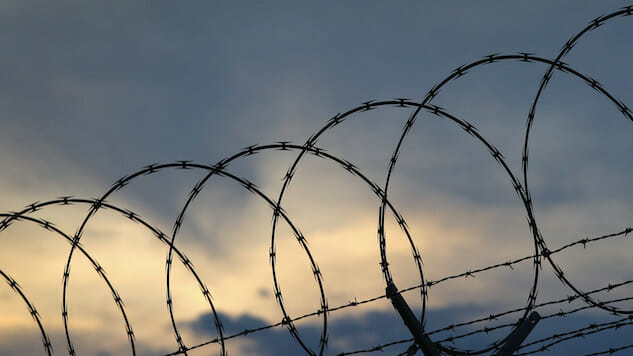Study: When It Comes to American Incarceration, Race and Class Both Matter, But Class Matters More
Photo courtesy of Getty
There’s a fascinating study highlighted today by Zaid Jilani at The Intercept, and it seeks to examine the proximate causes of America’s sky-high incarceration rate, specifically for African-Americans. The report, by the People’s Policy Project, undertook a difficult (some would say impossible) task—separate racial and economic factors that contribute to incarceration in our country, and determine which matters “more.” Using a national database that gave comprehensive information on a “representative sample” of adult men ages 24 to 32, Nathaniel Lewis collected data on four outcomes:
Whether or not men aged 24-32 years have ever been to jail or prison
Whether or not men are jailed after being arrested
Whether or not men have spent more than a month in jail or prison
Whether or not men have spent more than a year in jail or prison
Sorting for race and economic class, he determined that for the first three outcomes, economic class had a “statistically significant effect,” while race did not. For the last outcome—whether a man spent more than a year in jail or prison—class still had a statistically significant effect, but it was also true that a poor black man was more likely than a poor white man to serve a longer sentence. (And it’s not hard to tie draw a direct correlation to the well-documented differences in sentencing between black and white criminals.)
What should we take from this? Per Jailani:
-

-

-

-

- Curated Home Page Articles By Test Admin October 21, 2025 | 3:10pm
-

- Curated Home Page Articles By Test Admin October 21, 2025 | 2:57pm
- Urls By Test Admin October 21, 2025 | 2:57pm
- Curated Home Page Articles By Test Admin October 21, 2025 | 2:55pm
-

-

-

-

-

-

-

-

-

-

-

-

-

-

-

-

-

-

-

-

-

-

-

-

-

-

-

-

-

-

-




































